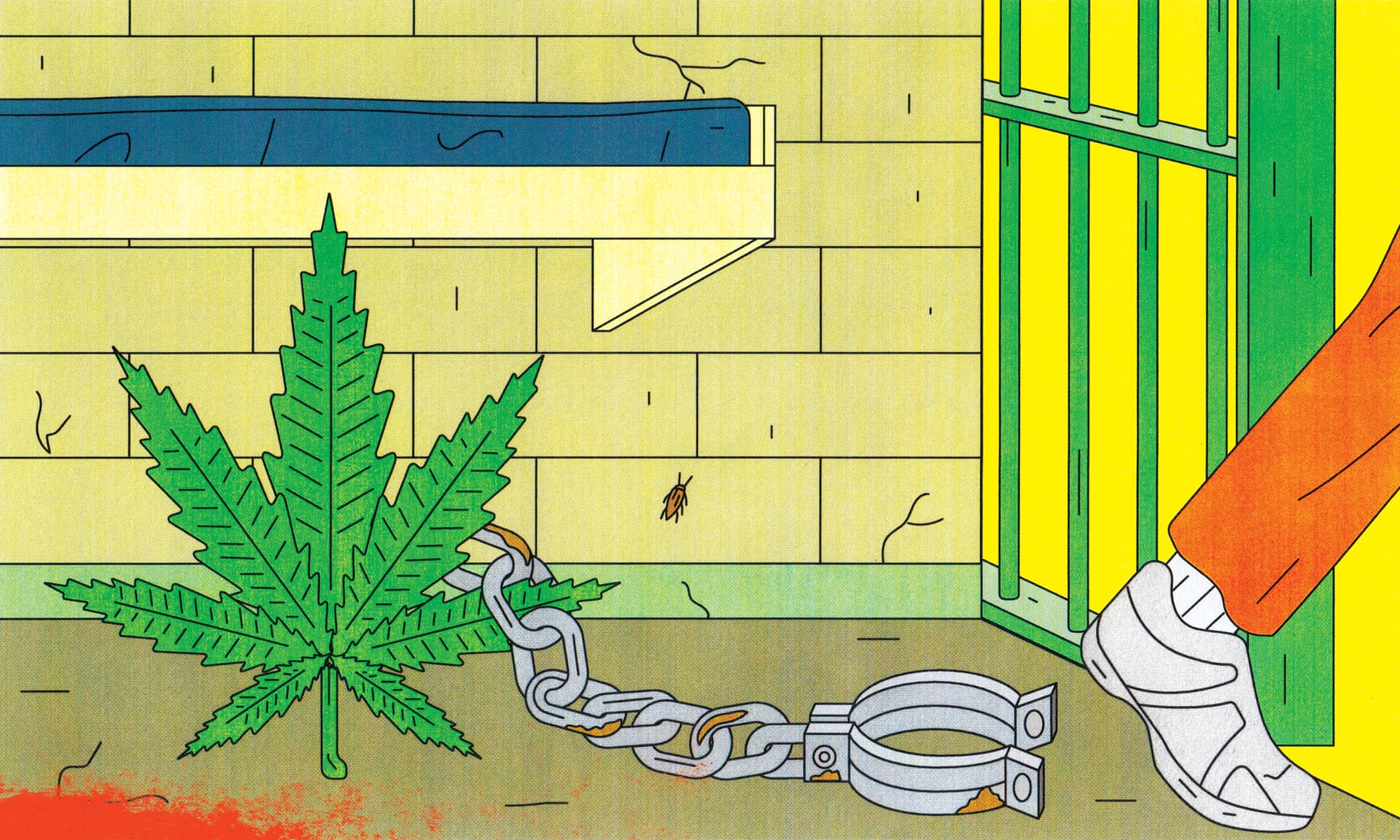Lorenze Lanier, 32, spent his first decade as an adult in and out of prison for non-violent cannabis convictions. “I was 18. I didn’t know what to do, so I started selling drugs,” he said. He was living in Los Angeles’ Skid Row when he “caught” his first felony. And when he realized how severely his criminal record curtailed his prospects, he felt he had no choice but to continue selling drugs.
After three stints in prison, Lanier got a job at Walmart as an overnight stocker, but he didn’t see much opportunity to advance further. “Not only is it hard to get a job [with a criminal record], but the jobs you do get are not living-wage jobs,” he said.
Much of the outrage surrounding the war on drugs focuses on mass incarceration. But relatively few minor cannabis convictions lead to long-term prison sentences. Having any kind of criminal record, however, can block access to jobs as well as publicly funded housing and scholarships. Once individuals have paid their debt to society, they’re cut off from ways to productively rejoin it.
And as legalization continues to gain momentum, marijuana arrests have actually increased. In 2017 there were more than 650,000 marijuana arrests in the US, according to calculations by the legalization activist and journalist Tom Angell, the vast majority for minor possession offenses. The reasons are complex but often reflect the illegal market’s hold on a portion of sales. While arrests have plummeted in some jurisdictions, police elsewhere have pursued pot busts more aggressively.

